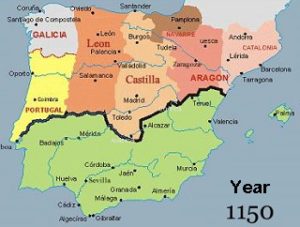
Arquivo para March 20th, 2018
Portugal seen by a Brazilian
We should study more Portugal because of its influence on Brazilian culture, but we know the facts that influenced Brazil: its dependence on England, the search for “a way for the Indies”, although the story may be quite different and our dependence / independence of Portugal made by D. Pedro I.
facts that influenced Brazil: its dependence on England, the search for “a way for the Indies”, although the story may be quite different and our dependence / independence of Portugal made by D. Pedro I.
The little that I know, Portugal was marked by the presence of the Romans for over 600 years finally by the Moors for about 800 years, a history shared with Spain over these more than a thousand years.
Portugal was recognized as an independent kingdom in 1143 by King Afonso I and with the help of the Christian military and the Treaty of Zamora was made, between D. Afonso VII of León and Castile (then Spain) and D. Afonso Henriques who was a cousin of Alfonso VII of Leon and Castile, on the map of 1150 was still smaller than today (photo).
The name Portugal came from the Portucalense county, born between the rivers Minho and Douro, who knows this already knows enough,
The stabilization of the borders in 1297 made Portugal the European country with the oldest frontiers, it also formed in the following years the first global empire of history, with possessions in Africa, South America, Asia and Oceania.
A crisis of succession in 1580 resulted in an Iberian Union with Spain due mainly to the Dutch offensive (including in Brazil), a period in which the kingdom lost much of its status and wealth, only to be independent in 1640 with the dynasty of Bragança , very well known to Brazilians, but it was the period when it lost its largest colony, Brazil.
Again after this period we no longer know the history of Portugal, for obvious reasons, but in 1820 the Portuguese adopted their first constitution,
In 1926 Portugal had a coup d’etat beginning a dictatorship, from 1961 began a series of colonial wars that ended military government in 1974 (revolution of the carnations), when was military government established the Salazar period, in 1975 all possessions in Africa became independent.
The constitution and 1976 defined Portugal as a semi-presidential republic, and in 1986 began the modernization and insertion of the country in the European space with the insertion in the European Economic Community (CEE).
The recent history of Portugal, its serious crisis and the alliance that governs today, we already spoke in another “geringonça” post we will see later.

